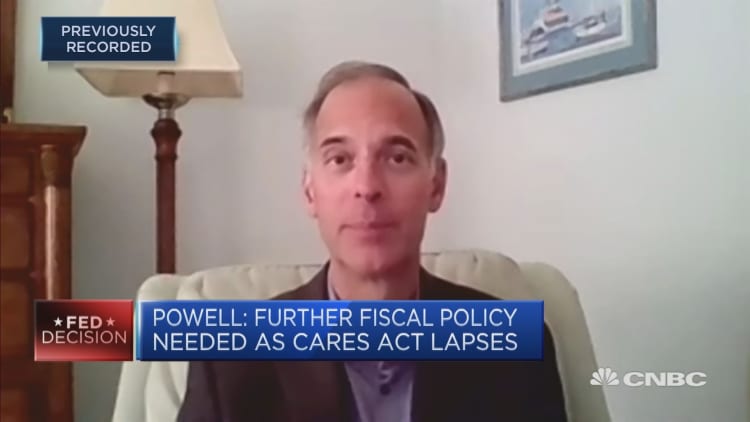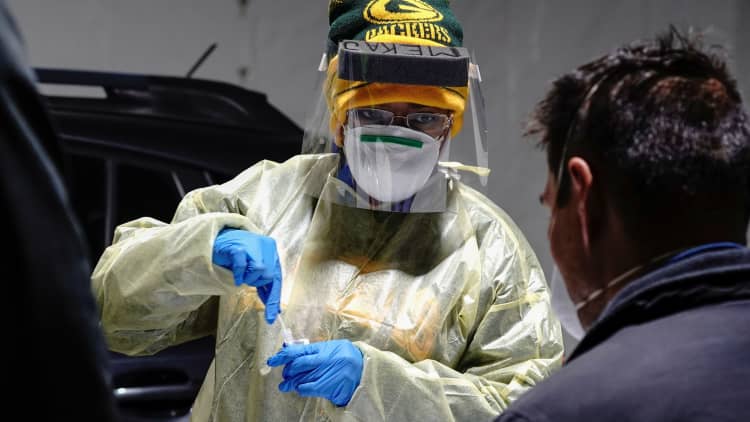
The U.S. economy, which has shown signs of recovering, could see its prospects turn given the intensifying spread of Covid-19 in the country and a lack of additional support measures, said Mark Zandi, chief economist of Moody's Analytics.
The International Monetary Fund said last month the U.S. economy is projected to shrink 4.3% this year. That's much better than its previous forecast for a 8% contraction as the global economy showed signs of a faster recovery, said the IMF.
"I think the risks are pretty high here that the economy backtracks," he told CNBC's "Squawk Box Asia" on Friday.
"We are suffering a very significant reintensification of the virus. I mean 40,000 daily confirmed infections four, six, eight weeks ago and we're now close to 100,000 — that's going to start doing some damage," he said.
The U.S. recorded more than 100,000 daily confirmed coronavirus cases for the first time on Wednesday, data compiled by Johns Hopkins University showed. Cumulatively, the U.S. has recorded over 9.6 million Covid-19 infections so far — the highest number globally, Hopkins data showed.
The surge in cases could see the U.S. follow in the footsteps of Europe, where the outbreak trajectory is about four to six weeks ahead of the U.S., Zandi suggested. He pointed out that Europe has had to reimpose social-distancing measures to contain a resurgence in the coronavirus, which would cause economic damage.
The lack of economic support from the U.S. government is worsening the outlook, the economist said.
"And then we have no additional fiscal support, at least not on the near-term horizon, at least not until … the presidential inauguration in January, in all likelihood. So that leaves the economy pretty vulnerable here," said Zandi.

Many of the measures in the $2 trillion U.S. relief package, the CARES Act, have expired or are due to end soon. Negotiations for further support reached a stalemate as Republicans and Democrats couldn't agree on the size of the package and what measures to spend on.
Senate Majority Leader Mitch McConnell, R-Ky., said on Wednesday that a new stimulus bill would be his top priority. But Nobel prize-winning economist Paul Krugman told CNBC on Thursday there's no indication the senator would agree to a large enough package.
Zandi said a likely "split government" in the U.S. means a "big fiscal rescue package" would not happen. "It means less growth, it's going to take longer for the economy to get back to full employment."
Votes are still being tallied in the U.S., but Democratic presidential candidate Joe Biden is leading with 253 electoral votes — just 17 short of the 270 needed to win, according to NBC News. President Donald Trump, who's seeking reelection, has 214 electoral votes in the bag, projected NBC.
In the congressional race, NBC News projected that Democrats will retain control of the House of Representatives, but their chances of taking the Senate have fallen.


